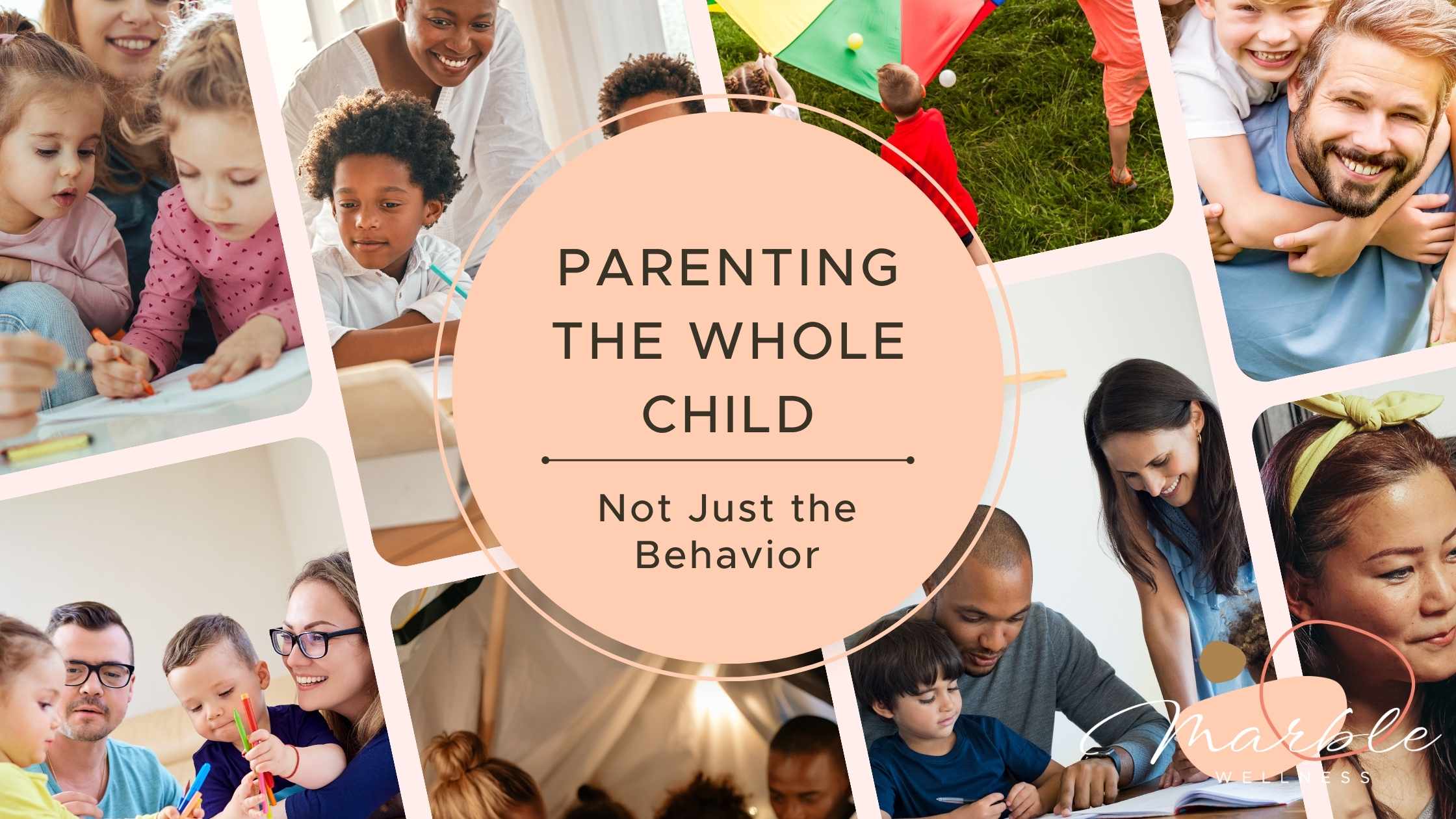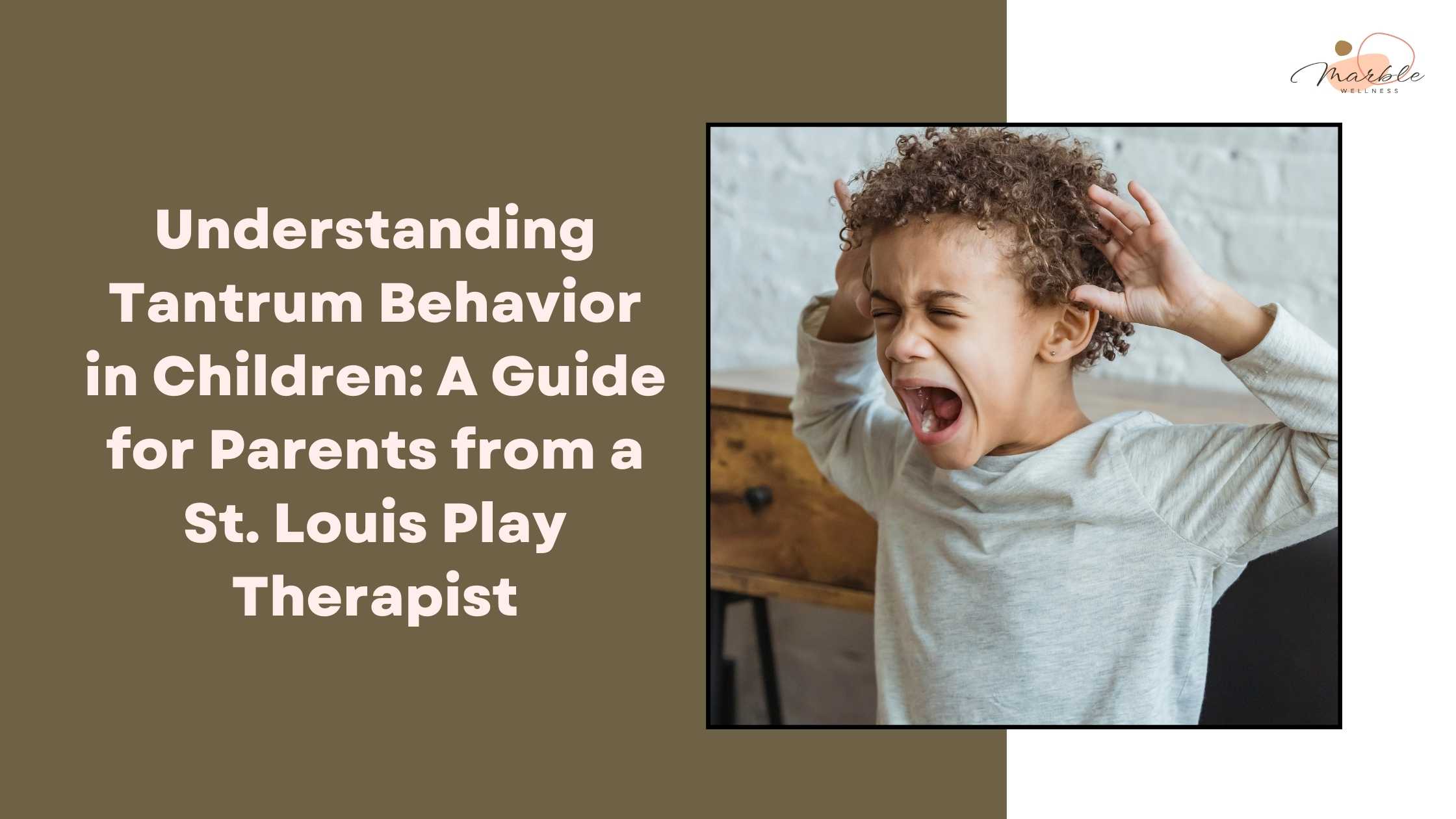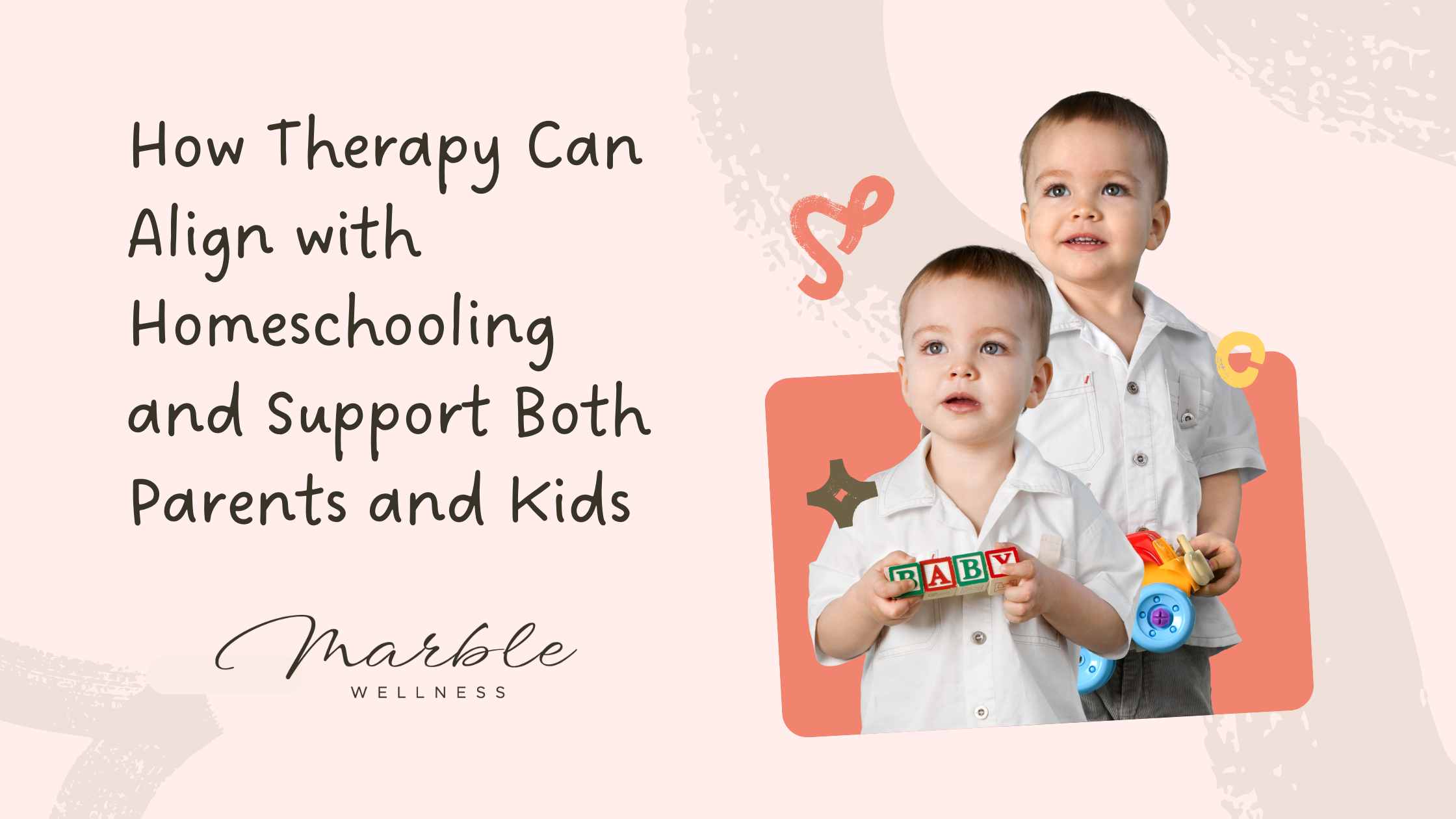We’ve all been there while parenting. That moment when your child’s behavior feels like it’s absolutely spiraling out of control. Whether it’s a tantrum, an attitude adjustment, or just a full-blown meltdown over something that seems pretty minor to you (like why is this such a big deal?!), it’s hard not to focus just on the behavior. After all, behaviors are loud, right?
But here’s the thing: as parents, it’s important to remember you’re not just parenting a set of behaviors—you’re raising a whole child. It’s easy to get caught in the moment of a behavior issue…but to make lasting changes, it helps to take a step back and consider the bigger picture.
Why “Parent the Whole Child” Matters
When we focus solely on behavior, we might miss out on understanding why our child is acting the way they are. Kids aren’t robots—they’re little humans with emotions, needs, and experiences. Behaviors are often a clue that something deeper is going on.
Building emotional intelligence: Understanding the “why” behind a behavior helps your child build their emotional intelligence. If you can guide them through their feelings, instead of just stopping the behavior, you’re helping them learn how to cope better in the future. It’s about teaching them how to understand and manage emotions, not just avoid consequences.
It’s not just about the behavior: A child’s behavior could be a response to stress, anxiety, confusion, or even tiredness. Sometimes, that attitude is more about how they’re feeling inside rather than just an attempt to annoy you. Imagine trying to function on zero sleep, hungry, and overwhelmed. Behavior starts making a little more sense, right?
How to Look Through the Lens of “The Whole Child”
When dealing with a challenging behavior, take a moment to pause and consider the context. What’s really going on behind that behavior? Here are some key things to keep in mind when “parenting the whole child”:
1. Consider Developmental Stages
Children’s brains and emotional regulation skills are constantly changing. A behavior that might seem totally out of line for a 10-year-old might actually be totally normal for a 3-year-old! Every child is in a different developmental stage, so they’ll need different approaches.
- What to do: Take time to educate yourself on what behaviors are developmentally appropriate for your child’s age. A little research (or a quick parent coaching session with a child therapist) can go a long way in shifting your perspective. Knowing that your child is just beginning to develop impulse control can help you be more patient during those moments of frustration.
2. Look at the Big Picture (Family Dynamics)
You know your kids, and you know your family. Sometimes, behaviors can be a result of sibling rivalry, changes in the family (a move, new baby, etc.), or struggles with school or friends. Consider whether external factors are playing a role.
- What to do: If one child is constantly acting out, step back and look at the family dynamic. Are siblings bickering a lot? Is there a new situation causing stress? Sometimes addressing the environment and not just the behavior can make a huge difference. When you adjust the family environment, you can sometimes help reduce the need for those behaviors in the first place.
3. Understand Their Emotions and Needs
Behaviors are often a cry for attention, comfort, or connection. Your child may not know how to express their feelings clearly, so it comes out as a tantrum or attitude instead.
- What to do: Before reacting to the behavior, ask yourself what the child might really need. Are they feeling anxious about school? Are they frustrated because they don’t know how to ask for help? Sometimes, a hug, a moment of quiet time, or a conversation can help address the real need underneath the surface behavior.
4. Empathy First, Consequences Second
It’s easy to jump straight to consequences when your child misbehaves. After all, they need to learn, right? But what if before you issue a consequence, you first respond with empathy? “I can see that you’re upset because you didn’t get what you wanted. That must be frustrating.” Once you’ve acknowledged the emotion, you can talk about the behavior.
- What to do: Show empathy first, then calmly guide them through the consequences of their actions. This gives your child the chance to learn, not just about the behavior but also about how their emotions are linked to the things they do. It’s a two-for-one lesson: emotional intelligence and behavior management.
Parenting Each Kid Differently (Yes, Even in the Same Family!)
If you have more than one child, you know that each kid is unique. That means that no two kids will respond to the same parenting strategy in the same way. One child might thrive with gentle guidance, while another might need a firmer hand.
- What to do: Learn to adapt your approach to each child’s needs. If one child is sensitive and easily overwhelmed, your strategy will likely involve a lot more reassurance and calm conversations. Another child who’s more independent or strong-willed may need clear and firm boundaries.
- Why it works: Tailoring your parenting style to each child can help them feel seen and understood for who they are. It’s less about a “one-size-fits-all” approach and more about recognizing each child’s unique needs and challenges.
The Bottom Line: Behavior Doesn’t Define Your Child
Remember, your child’s behavior is not a reflection of their worth. It’s easy to get caught up in fixing behaviors, but don’t lose sight of the bigger picture: You’re shaping a whole person, not just their behavior in the moment. Focusing on the whole child means you’re looking beyond the behavior to understand their emotional world, which can lead to more meaningful connections and better long-term outcomes.
What’s Next For Parenting the Whole Child
If you’re struggling with your child’s behavior and not sure where to turn, remember that therapy for kids can be a great resource. A child therapist can help guide both you and your child through these challenging behaviors and emotions. It’s about parenting the whole child, with a deep understanding of what’s going on inside, not just what’s happening on the outside.
Start Child Therapy or Parent Coaching in the St. Louis Area
By staying compassionate and looking at the full picture of your child’s life, you’ll not only help them work through tough moments but also build a stronger, more connected parent-child relationship for the future. If you live in the St. Louis metro area and are ready to improve your mental health, our expert St. Louis therapists are here to help. Not only do we have a team of therapists in Ballwin, MO, but we have also recently expanded to serve the Lake St. Louis and Wentzville area! Reach out to our Client Care Coordinator today to discuss your therapy options, both in-person and via online therapy in Missouri.
Contact Us!
Learn About Our Group Offerings

Additional Counseling Services at Marble Wellness in St. Louis, MO
Our counseling services are designed to help set you on a path of living a more fulfilled, calm, and happy life. Our incredible team of STL-based therapists has a variety of training backgrounds and areas of expertise. We specialize in anxiety, depression, grief, chronic illness, therapy for men, couples, and maternal overwhelm. Our practice also helps new moms with various postpartum concerns, moms in the thick of parenting, and moms with teens. We can also chat from wherever you are in the state with online therapy in Missouri. No matter where you are in your mental health journey, we would love to support you.



